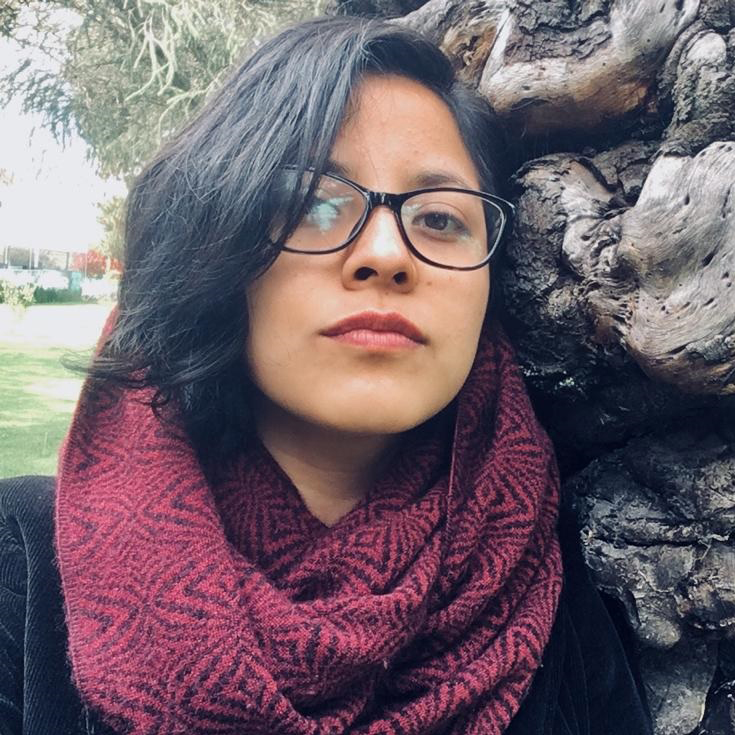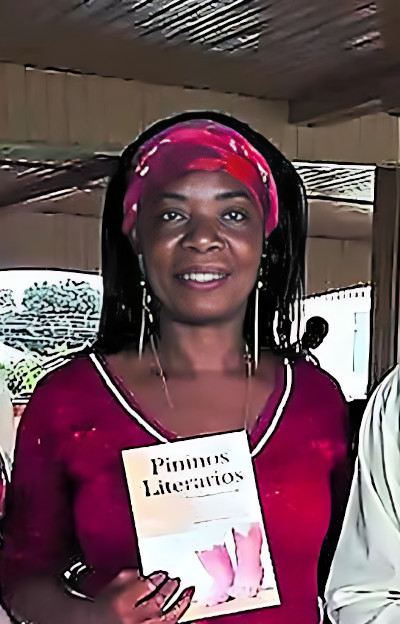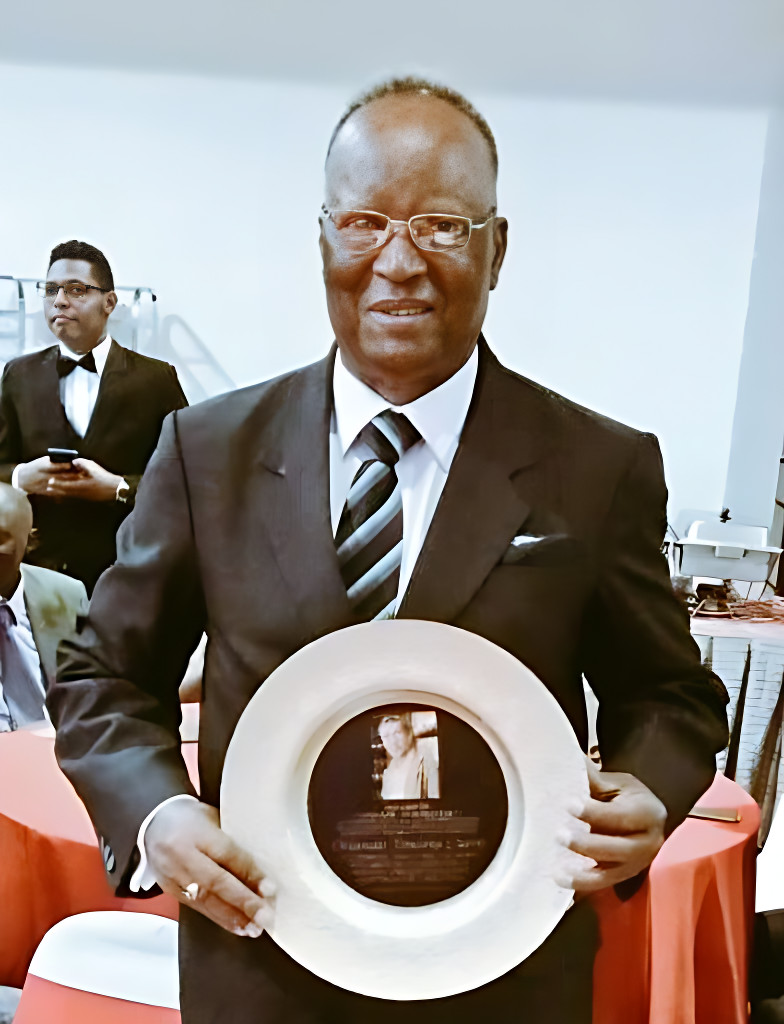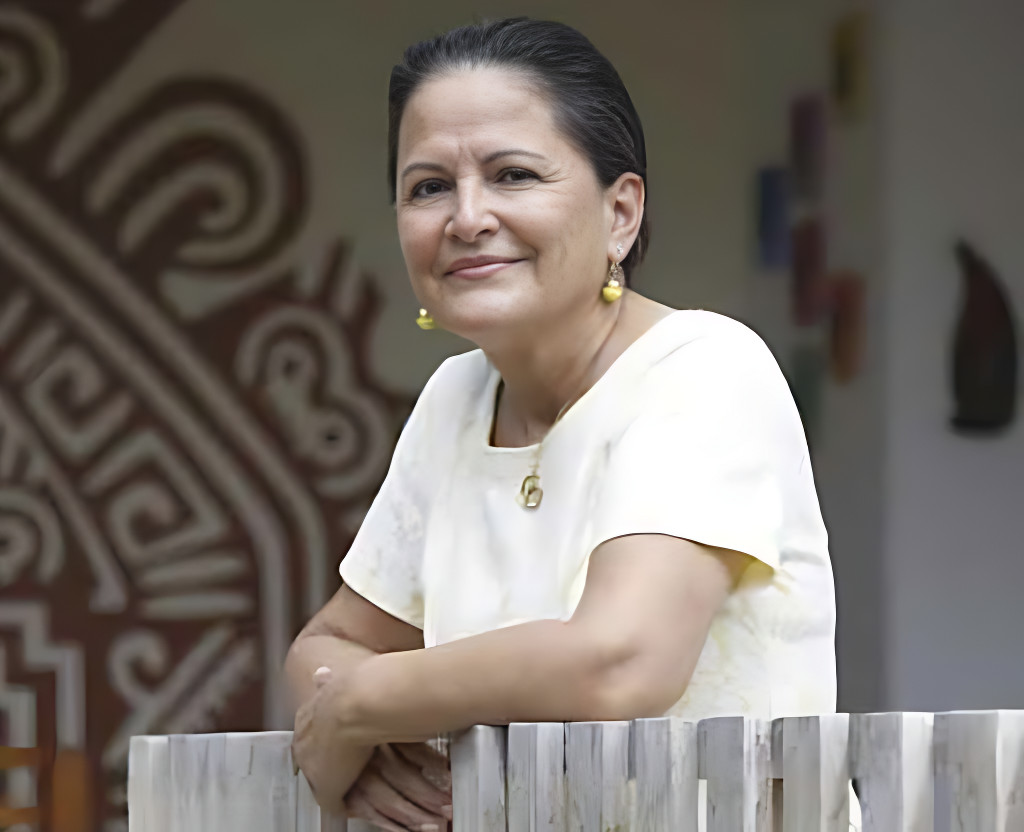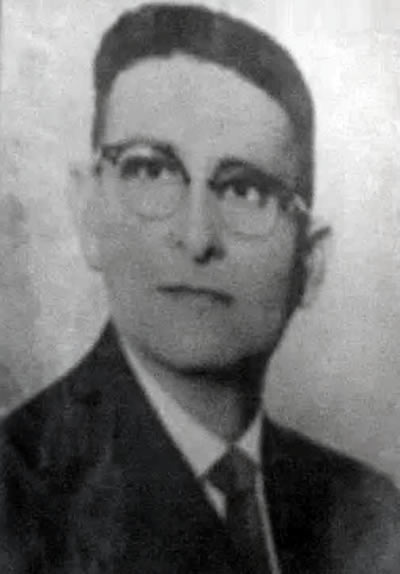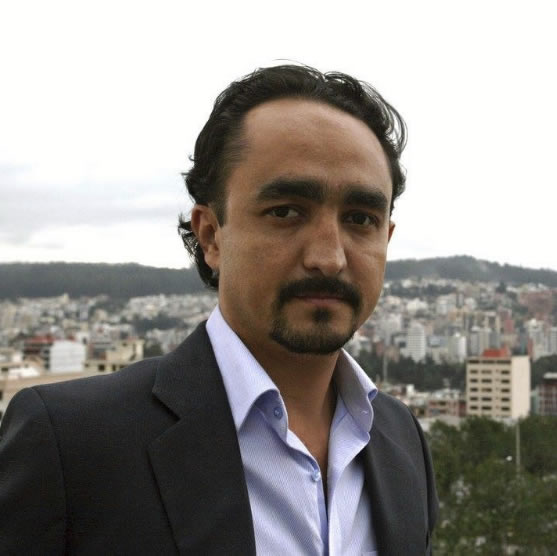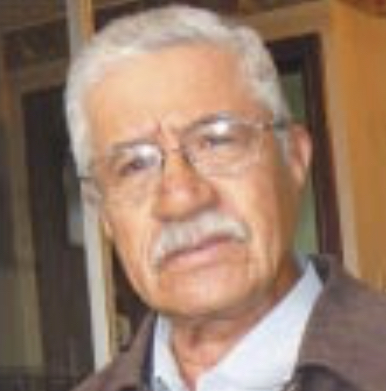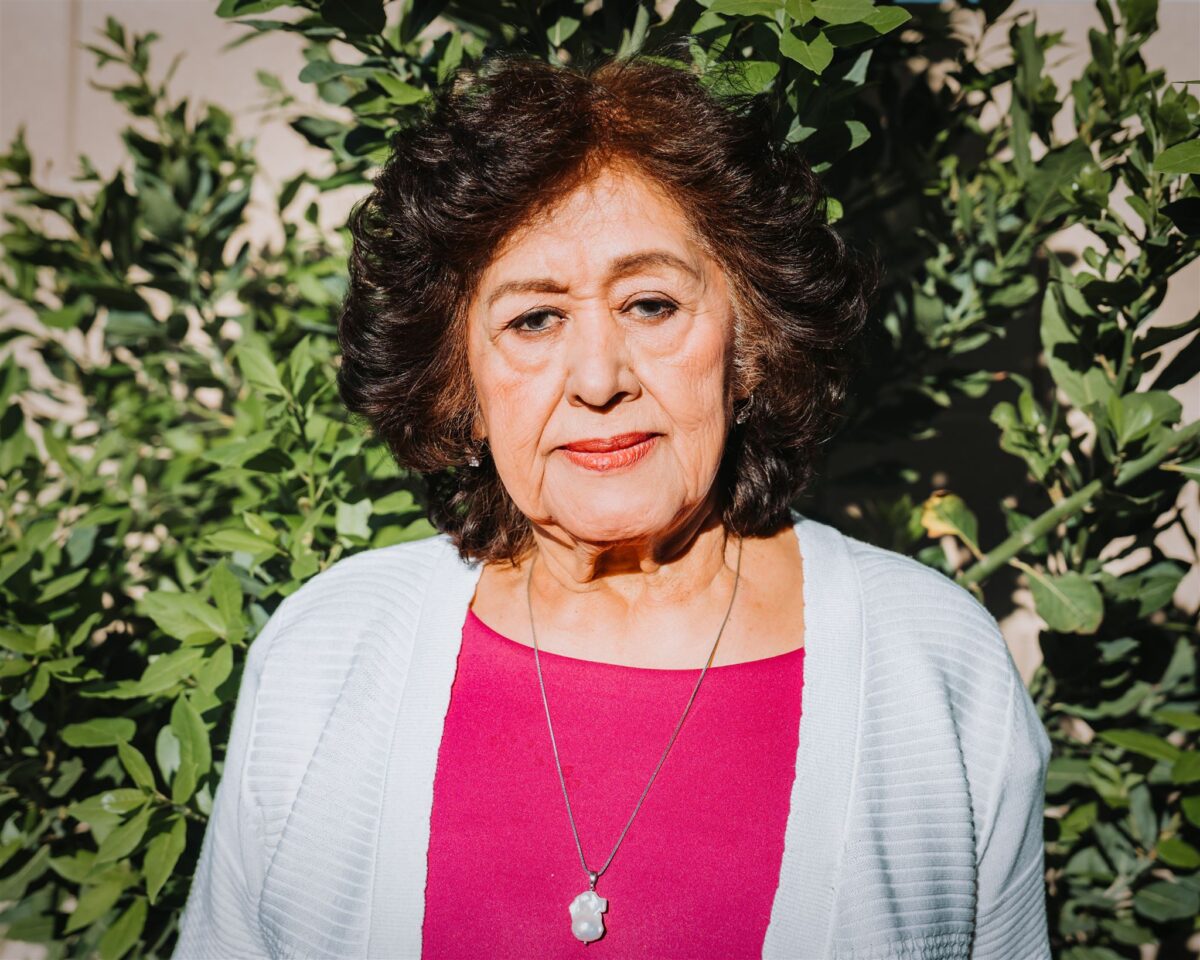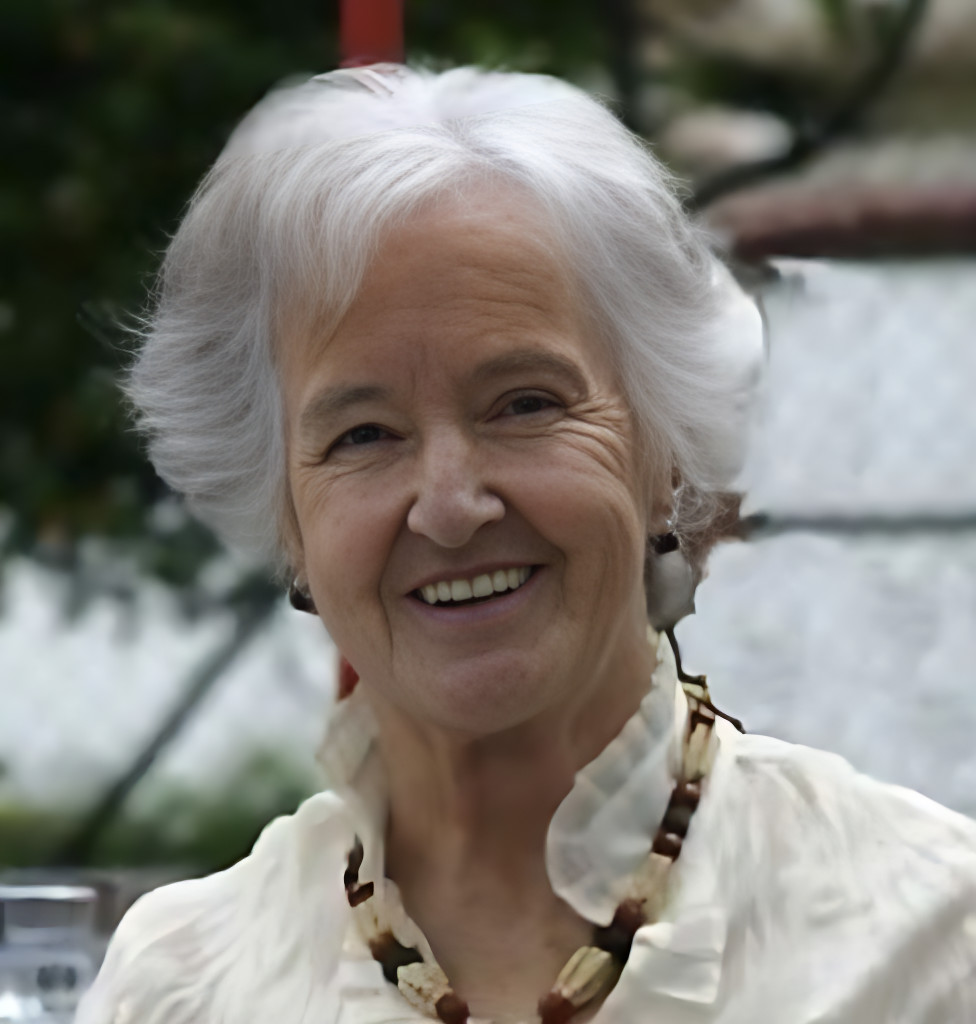Amanda Pazmiño Torres (Quito, Ecuador, 1993) is an Ecuadorian poet, writer, and teacher of language and English. She has been actively involved in cultural promotion and served as a Cultural Ambassador at the FIL Lima in 2012. In 2020, Pazmiño published her first poetry book, titled “Les hablaré de ti a todos los mares que fragüen un hogar en mis ojos,” which won the 12th edition of the Ileana Espinel Cedeño National Poetry Contest. She leads the ERGO International Cultural Group in Ecuador. She directs workshops focused on creative writing and personal growth, using writing as a tool for self-discovery. She is the director of the poetic writing workshop titled “Camino hacia el equilibrio: palabras que sanan” (Path to Balance: Healing Words). Her poems have been published in the newspaper El Ciudadano and several anthologies. Her poetry booklet “Recorrido de abismo” (Journey through the Abyss) was selected and published by the editorial imprint Despertar (Loja, 2017).
Continue reading “Amanda Pazmiño Torres”Posts
María Belén Muñoz
María Belén Muñoz Menéndez (El Carmen, Ecuador) is an Ecuadorian poet, writer, cultural promoter, professor, and Agricultural Engineer with a Master’s degree in Environmental Development. She has held positions such as the Coordinator of the Culture Department at the Universidad Laica Eloy Alfaro de Manabí, Campus “El Carmen,” where she contributed her expertise as a university teacher. Her talents and accomplishments led to her participation as part of the delegation of Ecuadorian writers at the prestigious International Book Fair in Cuba in 2011. Furthermore, she was actively involved with the International Art Group “Plaza XXI,” serving as the National Coordinator for the Ecuador Chapter. María Belén also played a significant role as the president of the House of Culture in the canton of El Carmen.
Continue reading “María Belén Muñoz”Máxima Angulo Borja
Máxima Angulo Borja, born in San Lorenzo, Esmeraldas, is an Ecuadorian poet. Her poetry is deeply rooted in personal experiences and activism, exploring themes of Afro-Ecuadorian identity. In 2018, Angulo published her book “Pininos Literarios” through the House of Ecuadorian Culture of Esmeraldas. This work delves into Afro-Ecuadorian culture, incorporating mythological characters such as La Tunda, El Riviel, and La Gualgura to emphasize their cultural significance. The book also pays tribute to the marimba, a traditional musical instrument in Esmeraldas. Angulo’s writing resonates with readers through its accessible language and vivid descriptions, shedding light on social realities and preserving ancestral customs. Currently residing in Muisne, a coastal town in the southwest of Esmeraldas province in northwestern Ecuador, Máxima Angulo Borja works as a literature and language teacher at Unidad Educativa Muisne.
Continue reading “Máxima Angulo Borja”Orlando Tenorio
Orlando Tenorio Cuero (Esmeraldas, May 22, 1945) is an Afro-Ecuadorian poet and writer. Tenorio’s poetry explores a variety of topics, providing deep observations on social consciousness, struggle, and the human condition. His notable books include “Desde atrás de la vida” [From Behind Life], “El Alfabeto de las golondrinas” [The Swallows’ Alphabet], and “Epistlas para el hombre y el mar” [Epistles to Man and the Sea]. Tenorio also served as president of the Esmeraldas chapter of the House of Ecuadorian Culture (Casa de la Cultura Ecuatoriana), displaying his dedication to fostering arts and culture in his region.
Continue reading “Orlando Tenorio”Ingrid Bravo Ruiz
Ingrid Bravo Ruiz (Manabí) is an Ecuadorian poet and politician. Her debut poetry book, titled “El dolor de tu ausencia” (2014), is a remarkable testament to her poetic talent and introspective nature. Published when she was just 17 years old, this collection explores the depths of love, longing, and the profound impact of loss. Furthermore, Ingrid Bravo Ruiz holds the distinction of being the youngest poet featured in the poetry anthology titled “Antología poética de mujeres manabitas: voces de ternura al corazón del pueblo” (Poetic Anthology of Manabí Women: Voices of Tenderness to the Heart of the People), compiled by Vicenta Alarcón Castro in 2019.
Continue reading “Ingrid Bravo Ruiz”Libertad Regalado Espinoza
Libertad Regalado Espinoza (Jipijapa, April 26, 1956) is a Numerary Member of the National Academy of History of Ecuador. She is a pedagogue, writer, and researcher. She has written books, scientific articles, and works related to history and intangible cultural manifestations of the coastal peoples of Ecuador, particularly Manabí. Her notable works include “Manabí y su comida milenaria” (Manabí and Its Ancient Cuisine, 2008-2029), “Las hebras que tejieron nuestra historia” (The Threads that Wove Our History, 2010), “Identidad e indigenismo en Manabí” (Identity and Indigenism in Manabí, 2016), “Santa Ana madre del río Grande” (Santa Ana, Mother of the Great River, 2019), and “El amorfino manifestación cutltural del pueblo montuvio” (The Amorfino, Cultural Manifestation of the Montuvio People, 2019). She has worked on various consultancies and has participated in national and international congresses. In 2020, the National Assembly of Ecuador awarded her the “Dra. Matilde Hidalgo de Prócel” decoration.
Continue reading “Libertad Regalado Espinoza”Próspero Pérez García
Próspero Pérez García (Jipijapa, December 8, 1905 – unknown) was a journalist, writer, and historian from Jipijapa. He dedicated his life to researching and writing about the history of his hometown. His works include “Cincuenta años del incendio de Jipijapa” and “Jipijapa a través de los siglos,” among others. As a journalist, Próspero Pérez served as a correspondent for several newspapers. In addition, he documented the old Jipijapa through his captivating photographs, which have been showcased in photographic exhibitions organized by the National Institute of Cultural Heritage (INPC). His contributions earned him recognition from institutions and organizations both during his lifetime and posthumously. His book on the fire of Jipijapa inspired the town’s anthem. Pérez’s adoptive daughter, Martha Luzardo, currently resides in the house where Próspero Pérez García lived and preserves his works. His writings continue to serve as a valuable resource for writers, journalists, and educators discussing Jipijapa’s history. Próspero Pérez remains a significant figure in the historical narrative of Jipijapa.
Continue reading “Próspero Pérez García”César Eduardo Carrión
César Eduardo Carrión (1976) is a prolific writer with a diverse literary repertoire. Holding a doctoral degree in Latin American Literature from the Universidad Andina Simón Bolívar, he is currently a professor at the Pontifical Catholic University of Ecuador. César has established himself as a respected figure in the Ecuadorian literary landscape, with a notable list of published works. His poetry books include “Revés de luz” (2006), “Pirografías” (2008), “Limalla babélica” (2009), “Poemas en una Jaula de Faraday” (2010), “Cinco maneras de armar un travesti” (2011), “Emboscada” (2017), “Es lodo y es polvo y es humo y es nada” (2018), and “Emboscada / Ambush” (translated by Kimrey Anna Batts, 2019). Additionally, César has contributed to the field of essays with several works, delving into various topics. Through his literary contributions and academic expertise, César Eduardo Carrión has made a significant impact on Ecuadorian literature.
Continue reading “César Eduardo Carrión”Alfredo Vivar
Alfredo Vivar (Cuenca, 1932 – unknown) was an Ecuadorian poet, painter, and civil engineer. He is perhaps best known for his poetry books, “Variaciones, natura, amor, soledad” (1978), “Sonsinfin Opus” (1984), and “Sonsinfin Opus 2” (1986). In 2012, the University of Cuenca published two poetry books from his cyclical series Sonsinfin: “Suele llama sola mi corazón” and “El mar azul… ¿Dónde es azul?” Eliecer Cárdenas, in the foreword of these volumes, emphasized the distinctiveness of Vivar’s poetry, characterized by its non-sequential nature and instantaneity. Jorge Dávila Vázquez once referred to Alfredo Vivar as “a lyricist who has not yet received the recognition he deserves.” Notably, Vivar’s poetry was also included in the anthology “Siete poetas,” which was published by the House of Ecuadorian Culture in 1990.
Continue reading “Alfredo Vivar”Juan Fernando Auquilla
Juan Fernando Auquilla Díaz (Cuenca, 1973) is an Ecuadorian poet, writer, and teacher. He is an accomplished poet, with five published poetry collections to his name: Divagaciones y profanaciones (2005), Ciudad Nómada (2010), Estaciones (2017), Sábanas Resucitadas (2019), and Ciudades (2020). Additionally, his works have been featured in poetry anthologies from Argentina, Spain, and Italy, showcasing the widespread recognition of his talent and literary contributions. As a member of the House of Ecuadorian Culture in Azuay, he has contributed to social projects focused on poetry and creative writing for vulnerable groups, including incarcerated individuals. He currently teaches at the National University of Education (UNAE).
Continue reading “Juan Fernando Auquilla”Humberto E. Robles
Humberto E. Robles (Manta, Manabí, Aug 18, 1938 – Miami, May 20, 2021) was an Ecuadorian writer and a renowned specialist in Ecuadorian and Latin American literatures. He retired from Northwestern University in 2003 after teaching for over 30 years and maintained a remarkable level of scholarly productivity until his death. His notable accomplishments included being named a member of the Ecuadorian Academy of Language, a prestigious cultural institution in Latin America. Professor Robles’s research focused on various topics within Spanish American literature, and he contributed extensively to encyclopedias, journals, and book collections. He authored several influential books and held significant academic positions throughout his career, making significant contributions to the field of literature.
Continue reading “Humberto E. Robles”Kimrey Anna Batts
Kimrey Anna Batts (1983) is an American translator known for her exceptional work in translating the poetry and fiction of contemporary Ecuadorian authors, including Santiago Vizcaíno and César Eduardo Carrión. Originally from rural East Tennessee, she pursued her studies in Anthropology and Latin American Studies at the University of Michigan. In 2006, she made the decision to move to Ecuador, where her passion for literature and language flourished, leading her to embark on a successful career as a professional translator. Kimrey pursued a Master’s degree in Literary Translation at the University Pompeu Fabra in Barcelona, further honing her skills and deepening her understanding of the craft. Her dedication and talent shine through in her published works, which have graced the pages of prestigious literary publications such as The Brooklyn Rail, Lunch Ticket, Bitter Oleander Review, Ezra, Cordite Poetry Review, Mantis, Asymptote, and Exchanges, among others. Currently, Kimrey resides in Mexico, continuing to contribute to the world of literary translation with her remarkable expertise and love for languages and literature.
Continue reading “Kimrey Anna Batts”Nancy Carlín Iglesias
Nancy Carlín Iglesias de Lujano (Esmeraldas, March 31, 1937) is an Ecuadorian poet. She called both Esmeraldas and Guayaquil home at different stages of her life. In 1960, she achieved recognition with the publication of a notable collection of poems titled “Este paisaje llamado día” [This Landscape Called Day], released by the Publications Department of the University of Guayaquil. Her exceptional talent as a poet led to the inclusion of her work in prominent anthologies such as “Espirales Poéticas,” “Presencia de la mujer ecuatoriana en la poesía,” “Cuaderno de Poesia,” and “Lirica Hispana” (Venezuela). During the late 1950s, Nancy contributed to newspapers or magazines such as La Hora, Nuevo Diario La Hora, La Nación (Diario Matutino), and Cronica Universitaria. Following her marriage in 1965, Nancy took a hiatus from publishing poetry, but her love for the art form remains undiminished. She continues to write poems for personal enjoyment, as well as for her family and on special occasions. She currently resides in Las Vegas, Nevada where she now goes by her married name, Nancy Lujano.
Continue reading “Nancy Carlín Iglesias”Teresa Crespo Toral
Teresa Crespo Toral (Cuenca, October 30, 1928 – Quito, February 15, 2014) was an Ecuadorian writer and a pioneer of children’s literature in her country. Her writings are considered classics of the genre and have been a source of inspiration for new generations of readers. From a young age, Teresa was deeply passionate about literature, and her love for the written word led her to compose her first poems. She authored several well-known books, including “Novena al Niño Jesús,” “Pepe Golondrina y otros cuentos,” “Mateo Simbaña,” which was studied at the University of Paris, and “Ana de los Ríos,” a book adapted into a film by the Convenio Andrés Bello. Teresa Crespo Toral received recognition through various awards, such as the Palma de Plata from the University of Cuenca and the first prize from the House of Ecuadorian Culture in Azuay, among others. She was married to the politician and historian Jorge Salvador Lara and had five children.
Issa Aguilar Jara
Issa Aguilar Jara (Cuenca, 1988) is an Ecuadorian poet and journalist. She has authored 3 critically-acclaimed poetry collections. Her debut poetry book, “Con M de mote se escribe Mojigata” (2018), fearlessly challenges the conservative aspects of her hometown with intimate and satirical verses, and delves into intimate themes, including her relationship with her father. Her second collection, “Poliamor town” (2020), delves into themes of love, diverse relationships, and the complexities of human connections. In 2022, her latest book, “Dos tragos de sinestesia o El diablo verde,” won the prestigious César Dávila Andrade National Poetry Prize, further solidifying her reputation as a notable voice in contemporary Ecuadorian poetry. Aguilar’s work has resonated with readers, particularly the younger generation, making her books popular in Cuenca.
Continue reading “Issa Aguilar Jara”
